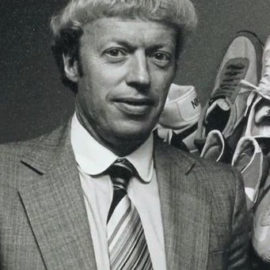

This article is an excerpt from the Shortform summary of "The Smartest Guys in the Room" by Bethany McLean and Peter Elkind. Shortform has the world's best summaries of books you should be reading.
Like this article? Sign up for a free trial here .
What was the Enron Blockbuster deal, and why is it important?
The Enron Blockbuster deal was a failed deal in which Enron and Blockbuster attempted to start a streaming service. The Enron Blockbuster deal fell apart, and Enron blamed Blockbuster, and then covered up their losses with unethical accounting practices.
Enron Broadband and the Blockbuster Deal
In 1999, Internet stocks were overheated. Put “broadband” in your company somewhere, and the stock price would rise without tying to fundamentals.
- Skilling calculated that every $1 invested in broadband would pay back $20 in market capitalization.
Skilling promised such large returns that the division was strongly pressured to make deals happen. They burnt a lot of money ($500MM a year) trying to find a valuable business plan.
The larger vision was that broadband might ultimately become a tradable commodity, like natural gas or oil. But this vision failed to meet reality:
- Physical technicalities got in the way. Internet lines were set up so sharing bandwidth wasn’t possible. In one sense, internet pipes were parallel pipes that never intersected.
- Enron promised that it was inventing new routing technology that would enable bandwidth sharing, but this never made it out of the lab.
- Meanwhile, the incumbent telephone companies were uninterested in hooking into Enron’s market. This would turn bandwidth into a commodity that would cut into their control of markets.
To Enron, Blockbuster was a good business deal. Enron began partnering with Blockbuster to build content streaming services. Its rosy projections made napkin-calculations on how many cities they would enter, the market share they’d have, and the # of movies users would buy. In classic Enron fashion, it booked $110 million in profits from this deal immediately, before anything had materialized.
The reality of executing on content streaming was difficult. The content owners had massive leverage and were wary of entering a distribution medium they couldn’t control. Streaming from the Internet to the TV required expensive special boxes. And incumbent DSL providers controlled access to the last mile and were tough in negotiations.
The trials were tiny – 300 households involved – and the ultimate real sales from this were laughable, in the dozens of dollars. An Enron executive handed the business manager $5 and said “there, I doubled your revenue.”
The Enron Blockbuster partnership fell apart months after announcement, with Enron claiming Blockbuster hadn’t lined up content providers like promised.
Even though the failed deal should have been written down as a loss, Enron reasoned that it should actually be a gain – Enron would no longer have to share the proceeds!
Unfortunately, both Enron Energy Services and Enron Broadband bets were off the mark. Enron spent billions on unprofitable projects. This put Enron in an impossible position – having spent all that money and raised expectations, there was no room for failure. They could only hide the massive losses through more machinations.
Andy Fastow Profits from Deals
Meanwhile, CFO Andy Fastow positioned himself aggressively to profit from Enron’s deals, including the Enron Blockbuster deal.
The cash-losing EES and broadband divisions chewed through so much money that Enron became even more dependent on Fastow’s deals to avoid appearance of losses.
Fastow set up private equity funds (named LJM) that would be the 3% “independent capital” for the SPE deals that Enron was addicted to.
- As a part owner, he would earn “normal fund returns” like management fees and 20% of carry.
- He also invited select Enron lieutenants and friends to participate – ultimately, they would get an 180x return.
The possible conflict of interest was obvious to most concerned – Enron employees in the know, the board, and LPs of Fastow’s funds. But they all stepped out of the way for their own reasons:
- Enron employees were worried about being berated by Fastow and having their ratings punished. Objectors were publicly transferred to other departments out of Fastow’s way.
- The board was comforted by assurances that all deals would be reviewed by the Chief Accounting Officer, and Fastow could be removed at any time. (In reality, the CAO was a rubber stamp.) Further, the board were likely emboldened by the stratospheric rise in Enron’s stock price in the late 90s.
- LPs wanted access to Enron deals, and Fastow made clear that participation in his private fund was required to stay in his good graces.
Many of the deals were rigged in LJM’s favor – Enron essentially guaranteed LJM against losses and bought back bad assets at inflated prices—and boasted profits, similar to the Enron Blockbuster flop.
- Why would Enron do such bad deals? LJM’s job was to make Enron look good – warehouse troubled assets, getting them off Enron’s balance sheet and allowing Enron to book profits and cashflow. Enron needed LJM so desperately to keep up appearances of earnings that it structured great deals for LJM.
- The deals were structured in a way that implied the fundamental belief that Enron stock would never fall.
- Some deals were outright fraudulent – three Natwest partners deceived their employer on the value of portfolio assets and arranged transactions to pocket $2.4 million each.
Fastow set up 3 of these funds, and was angling for a 4th that would raise $1 billion and be his ticket out of Enron. (At the end, Fastow’s total take would reach $60 million.)
The Enron Blockbuster deal was undoubtedly a failure. However, it’s important to also consider the way Enron handled their finances in the aftermath of the Enron Blockbuster deal, and how it lead to bloated company valuation.

———End of Preview———
Like what you just read? Read the rest of the world's best summary of Bethany McLean and Peter Elkind's "The Smartest Guys in the Room" at Shortform .
Here's what you'll find in our full The Smartest Guys in the Room summary :
- How Enron rose to become one of the world's most promising companies
- How Enron management's greed led it to start cutting corners
- The critical failures that crashed Enron's house of cards to the ground






